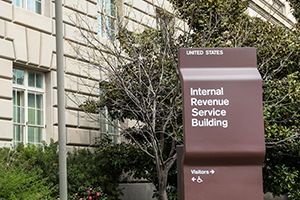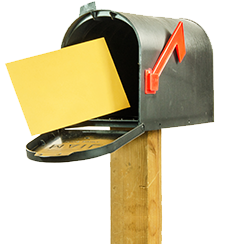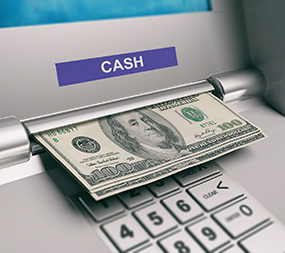What you need to know if one of your tax returns is stuck
 The IRS is coping with a backlog of historical proportions and it is impacting millions of taxpayers. According to IRS sources, as of July 31, there are still over 13 million tax returns that are to be processed. The nearly unprecedented delay is being attributed to the COVID-19 pandemic, under staffing at the IRS, and a slew of recent tax law changes. The challenge is how to navigate the IRS notices if you are caught up in this mess.
The IRS is coping with a backlog of historical proportions and it is impacting millions of taxpayers. According to IRS sources, as of July 31, there are still over 13 million tax returns that are to be processed. The nearly unprecedented delay is being attributed to the COVID-19 pandemic, under staffing at the IRS, and a slew of recent tax law changes. The challenge is how to navigate the IRS notices if you are caught up in this mess.
Complicating your tax life
- You’ve filed for an extension via mail, but the IRS says you haven’t filed your return yet and issues notices and penalties.
- You keep getting letters from the IRS after responding to initial inquiries.
- You filed your tax return on time, but the IRS says it doesn’t have your return, even though you may have received a confirmation.
What you can do
While you may not be able to get your tax return processed any faster, there are steps you can take to stay informed and make it easier for the IRS to work with your tax situation:
- Track your refund status. The IRS has developed an online tool, “Where’s My Refund?” that can provide updates. Find it at https://www.irs.gov/refunds.
- Check out IRS2Go. The agency also provides a mobile app called IRS2Go that checks your tax refund status. You can see if your return has been received, approved, and sent.
- Stay calm and keep responding. If the IRS sends you notices, keep detailed records of the notices and your timely replies. Eventually, they will get caught up. So keep good records by leaving a digital footprint and back up electronic records with paper versions.
- Prior correspondence is your friend. When you’re replying to IRS notifications, attach copies of prior correspondence with your latest letter. Make it easy for the IRS to follow your paper trail by dating each response and keeping the most recent response on top.
- Keep proof of delivery. Use express delivery or certified mail to confirm that the IRS receives your responses in a timely manner.
Remember that the IRS is working as quickly as it can to clear this backlog.
 Summertime means the 2020 tax filing season is firmly in the rearview mirror for millions of Americans. But summertime is also the season when the IRS sends letters to unlucky taxpayers demanding more money!
Summertime means the 2020 tax filing season is firmly in the rearview mirror for millions of Americans. But summertime is also the season when the IRS sends letters to unlucky taxpayers demanding more money!
If you receive a notice from the IRS, do not automatically assume it is correct and submit payment to make it go away. Because of all the recent tax law changes and so little time to implement the changes, the IRS can be wrong more often than you think. These IRS letters, called correspondent audits, need to be taken seriously, but not without undergoing a solid review. Here’s what you need to do if you receive one.
- Stay calm. Don’t overreact to getting a letter from the IRS. This is easier said than done, but remember that the IRS sends out millions of these correspondence audits each year. The vast majority of them correct simple oversights or common filing errors.
- Open the envelope! You would be surprised how often taxpayers are so stressed by receiving a letter from the IRS that they cannot bear to open the envelope. If you fall into this category, try to remember that the first step in making the problem go away is to open the correspondence.
- Conduct a careful review. Review the letter. Understand exactly what the IRS is explaining that needs to be changed and determine whether or not you agree with their findings. The IRS rarely sends correspondence to correct an oversight in your favor, but sometimes it happens.
- Respond timely. The IRS will tell you what it believes you should do and within what time frame. Ignore this information at your own risk. Delays in responses could generate penalties and additional interest payments.
- Get help. You are not alone. Getting assistance from someone who deals with this all the time makes the process go much smoother. And remember, some of these letters could be scams from someone impersonating the IRS!
- Correct the IRS error. Once you understand what the IRS is asking for, a clearly written response with copies of documentation will cure most IRS correspondence audits received in error. Often the error is due to the inability of the IRS computers to match documents it receives (for example 1099s or W-2s) to your tax return. Pointing out the information on your tax return might be all it takes to solve the problem.
- Certified mail is your friend. Any responses to the IRS should be sent via certified mail or other means that clearly show you replied to their inquiry before the IRS’s deadline. This will provide proof of your timely correspondence. Lost mail can lead to delays, penalties, and additional interest tacked on to your tax bill.
- Don’t assume it will go away. Until receiving definitive confirmation that the problem has been resolved, you need to assume the IRS still thinks you owe them money. If no correspondence confirming the correction is received, you should follow-up with another written confirmation request to the IRS.
Banking tips to help you cash in
Your cash is parked. Do you know if it’s making or losing you money? For instance, letting it sit in a non-interest-bearing account is a waste of earnings potential. It’s actually losing money if you factor in inflation! Here are some ideas to help you make the most of your banked cash:
Understand your bank accounts. Not all bank accounts are created equal. Interest rates, monthly fees, minimum balances, direct deposit requirements, access to ATMs, other fees and customer service all vary from bank to bank and need to be considered. Start by digging into the details of your accounts. There may be some things you’ve been unnecessarily living with like ATM fees or monthly account charges. Once you have a handle on your current bank, conduct research on what other banks have to offer.
Know your interest rates. As a general rule, the more liquid an account, the lower the interest rate. Checking accounts offer the lowest rates, then savings accounts, which yield lower rates than CDs. Maximizing your earnings is as simple as keeping your cash in accounts with higher interest rates. The overall interest rate earned between all your accounts should be higher than the inflation rate, which is generally around 2 percent.
Make smart moves. There are a couple of things to take into account when making transfers. First, federal law allows for only six transfers from savings and money market accounts per month. Second, if you invest in longer term investments like CDs or bonds, there are penalties for withdrawing funds before the maturity date. So make sure you can live without the funds for the duration of the term.
Stay diligent. Putting together a cash plan is just the start. The key to success is to be persistent. Besides losing out on potential earnings, mismanaging your cash can result in hefty overdraft fees. The more attention you devote, the more your money will grow.
Another year has come to an end and we would like to take the time to remind you of Form 1099 reporting requirements and changes to filing deadlines.
Certain payments made in the course of business are required to be reported on the appropriate Form 1099. The type of 1099 filed depends on the type and amount of the business expenditure. Some of the most common expenditures requiring a 1099 are listed below:
| Payments for: | Equal to or Exceeding: | Form: |
| Dividends | $ 10 | 1099-DIV |
| Interest (generally) | $ 10 | 1099-INT |
| Royalties | $ 10 | 1099-MISC |
| Liquidating distributions | $600 | 1099-DIV |
| Interest (paid in the course of business) | $600 | 1099-INT |
| Fees paid for services | $600 | 1099-MISC |
| Commissions | $600 | 1099-MISC |
| Prizes and awards | $600 | 1099-MISC |
| Rents | $600 | 1099-MISC |
Note: Generally, payments made to a corporation are not required to be reported on a form 1099. However, there are some exceptions such as attorney fees.
A copy of the 1099 is required to be postmarked to the recipient and the IRS by January 31, 2017. Failure to correctly file the required 1099’s within the due dates can result in penalties of up to $260 per return (based on when filed) with a maximum of $1,059,500 for each year.
In addition to the above mentioned requirements, business taxpayers will be required to answer two questions on their 2016 income tax returns: (1) Did you make any payments in 2016 that would require you to file Form 1099(s)? (2) If yes, did you file the required Form 1099(s)?
In order to properly fill out the required forms, you will need to obtain information from each person to whom you make qualifying payments. Form W-9 is used for this purpose and can be obtained by going to http://www.irs.gov/pub/irs-pdf/fw9.pdf.
The information above relates to the most common types of transactions and circumstances.
Quotes from actual IRS correspondence received by clients:
“Our records show we received a 1040X… for the tax year listed above, We’re sorry, but we cannot find it.”
“Our records show you owe a balance due of $0.00. If we do not receive it within 30 days, appropriate collection steps will be taken.”
“Payment is due on your account. Please submit payments on or before June 31st to avoid late payment penalties and interest.”
It’s pretty tough to pay a balance due of $0 on June 31st when June only has 30 days. The message should be clear. If you receive a notice from the IRS do not automatically assume it is correct and submit payment to make it go away. The same is true for any state notices. They are often in error. So what should you do?
Stay calm – Try not to overreact to the correspondence. This is easier said than done, but remember the IRS sends out millions of notices each year. The vast majority of them correct simple oversights or common filing errors.
Open the envelope – You would be surprised at how often clients are so stressed by receiving a letter from the IRS that they cannot bear to open the envelope. If you fall into this category try to remember that the first step in making the problem go away is to open the correspondence.
Careful review – Review the letter. Make sure you understand exactly what the IRS thinks needs to be changed and determine whether or not you agree with their findings. Unfortunately, the IRS rarely sends correspondence to correct an oversight in your favor, but it sometimes happens.
Respond timely – The correspondence received should be very clear about what action the IRS believes you should take and within what timeframe. Ignore this information at your own risk. Delays in responses could generate penalties and additional interest payments.
Get help – You are not alone. Getting assistance from someone who deals with this all the time makes going through the process much smoother.
Correct the IRS error – Once the problem is understood, a clearly written response with copies of documentation will cure most of these IRS correspondence errors. Often the error is due to the inability of the IRS computers to conduct a simple reporting match. Pointing the information out on your tax return might be all it takes to solve the problem.
Certified mail is your friend – Any responses to the IRS should be sent via certified mail. This will provide proof of your timely correspondence. Lost mail can lead to delays, penalties, and additional interest on your tax bill.
Don’t assume it will go away – Until a definitive confirmation that the problem has been resolved is received, you need to assume the IRS still thinks you owe the money. If no correspondence confirming the correction is received, a written follow-up will be required.